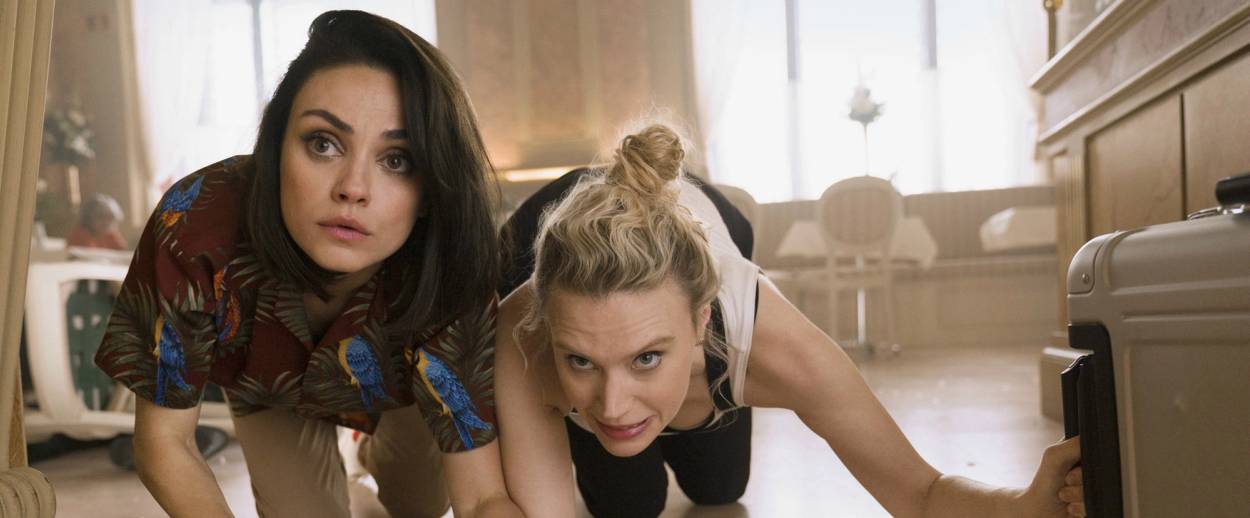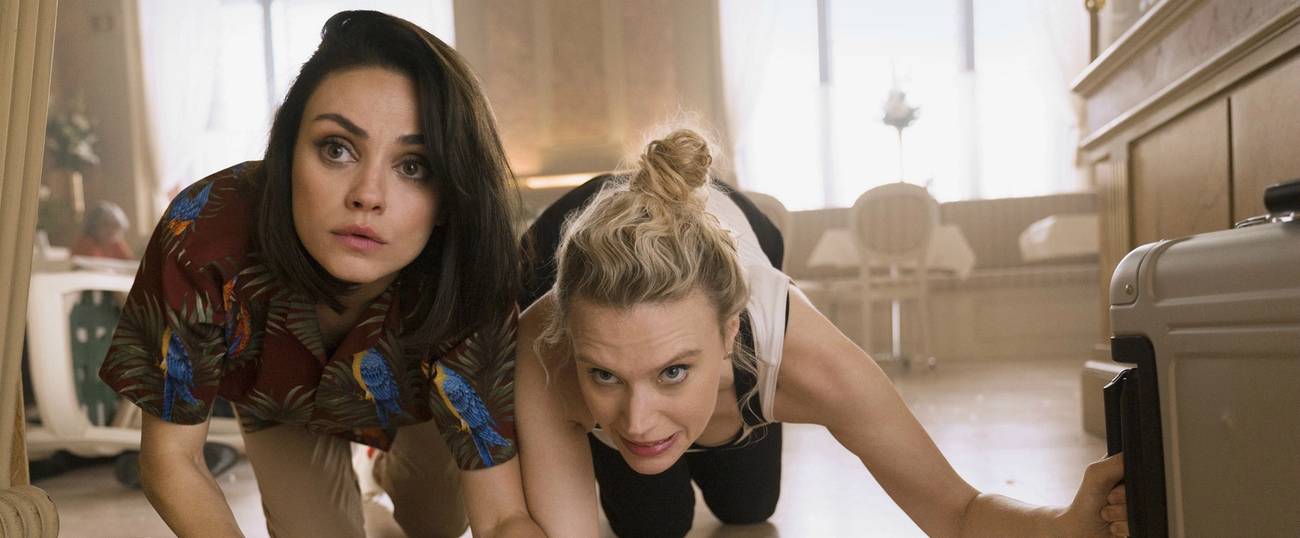A Conversation With the Creators of ‘The Spy Who Dumped Me,’ the Action Comedy Starring Mila Kunis
Susanna Fogel and David Iserson on filming in Budapest, women in Hollywood, and their favorite Jewish joke




Hitting theaters this past weekend, The Spy Who Dumped Me tells the story of best friends Audrey (Mila Kunis) and Morgan (Kate McKinnon) who unwittingly become entangled in an international conspiracy when Audrey discovers her ex-boyfriend was a CIA agent. For the team behind the camera—director Susanna Fogel and her co-writer David Iserson—a blockbuster action comedy was new territory.
In an interview with Tablet, Fogel and Iserson talked about their influences, filming in Hungary, and their connection to being Jewish.
Can you tell me a little about your Jewishness, and specifically how, or if, it influenced your comedy and writing style?
David Iserson: I went to Hebrew day school, I was bar mitzvahed, I can read Hebrew. I’m pretty culturally and non-observantly Jewish at this point in my life, though Susanna and I do have Passover together. It informs my comedy in ways I probably don’t intellectually know.
Susanna Fogel: Just the fact that you’re talking about intellectually knowing something versus subconsciously makes you pretty Jewish.
David: Totally. I just read a book called Jewish Comedy: A Serious History, and I nodded along in agreement all the way through.
Susanna: I was a heathen Jewess with no bat mitzvah. Only the neurosis, the brown hair, and the self-deprecating humor. But being one of the only Jewish kids in my WASPy hometown definitely informed my perspective on the humor of being an outsider (and an outsider with lactose intolerance).
David: I named my dog Bacon, so it’s not going great in the Jewish department.
Growing up, did you have any literary heroes—Jewish or not—that you looked up to?
David: Yes, but in 2018, they’re almost all problematic, so I’m not going to name them. Though Kurt Vonnegut is actually safe.
Susanna: He’s the one who believes in sunscreen, right?
David: No, he’s the one who’s misquoted as believing in sunscreen. I don’t know his feelings about sunscreen. He never mentioned it in Breakfast of Champions.
Susanna: I always really liked Philip Roth—I know he’s problematic too, but he’s dead so maybe it’s OK.
David: He’s only recently dead. He was problematic and alive very recently.
The Spy Who Dumped Me is an excellent great mashup of genres. Did you have much trouble pitching the idea to Lionsgate?
Susanna: No, but because we wrote the script before showing it to anyone, including Lionsgate. We just put our heads down and wrote it without running the idea by anyone, because it was tonally different for us and we knew on some level that we’d get asked a lot of questions and maybe start to doubt ourselves. We wanted to prove to ourselves we could do it.
What was it like to film on location in Budapest? Any good stories?
David: You mean the site of the largest synagogue in Europe? People were wonderful, food was wonderful, it was a great city to walk around in.
Susanna: Any place where the Jewish district is the hipster district is a very surreal and awesome place.
David: Yeah. Pertinent to your readership, the most popular restaurant in Budapest was called Mazel Tov, and it was great.
Susanna: The same guy was playing Drake covers every night.
David: Yeah, acoustic Drake covers. You know, Jewish music.
There aren’t many women behind the camera in the film industry in general, and even less in blockbuster comedies. Off the top of my head, I can name just one. Why do you think that is, and what can we do to change that?
David: You can take that question.
Susanna: Yeah, don’t mansplain how to answer a women-in-Hollywood question, Dave. I think the women-in- Hollywood problem is a chicken-and-egg problem, or rather, multiple chickens and eggs. Economics drive the creative, and for a long time, movies about men were just considered “movies,” whereas movies about women were considered niche and only appealing to women. This is to an extent still true, and what it does is represent movies about women as less profitable. Whether that’s true or not, it creates fewer opportunities for us. And at the same time, even though the current climate is welcoming hearing from us, we were raised in a very different climate so we are still adjusting to having the swagger and confidence to put our stories out there. What we can do to change that as women is just to ask ourselves “what would a dude do?” in situations where we are feeling uncertain.
Now that your first big-budget studio film has been released, is anything else in the works?
Susanna: We’re working on a few things! An action-adventure comedy, and a big epic superhero thing that tries to redefine that canon a bit and tap into the current zeitgeist around politically motivated, progressive young people who are frustrated with the government letting them down.
Lastly, do you have a favorite Jewish joke?
Susanna: I’m gonna let the former SNL writer who reads books about comedy supply this one.
David: Oh God. I can’t think of one.
Susanna: Here’s one. My dad has written a book of original limericks. Funny because it’s true.
The Spy Who Dumped Me is now playing in theaters everywhere.
Elazar Abrahams is a former intern at Tablet, and will attend Yeshiva University after a gap year at Netiv Aryeh in Jerusalem.